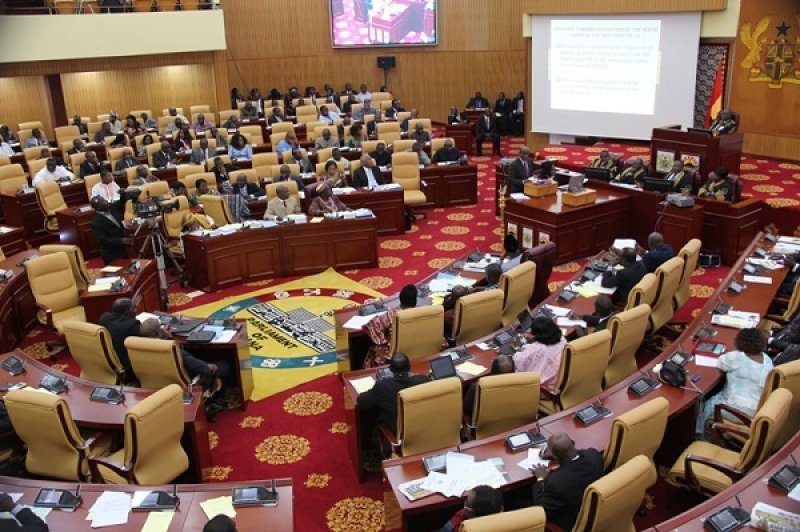When a father promises to do something for a child, the child relies hugely on that promise and expects that the adult will deliver on the promise made to him or her. When the time frame for that promise approaches, the child’s expectation will be that the father will fulfil his promise and as such, the child goes to his or her father in anticipation of the fulfilment of that promise.
When this promise fails to materialise, the child at first becomes disappointed and broken hearted. If the promise fails continuously to materialise, the child may utterly lose confidence in the father and probably in all other adults who may make similar promises to him or her.
This is the story of the Ghana Right to Information Bill. The Bill has become the oldest Bill in Parliament and is currently reckoned to be the only Bill that has seen several failed promises at both national and international levels. Governments past and present have made several promises to pass the Bill but this promise is yet to be realised. The Coalition on the Right to Information, like a child whose father keeps breaking his promises, is asking our MPs ‘whether it was a mistake trusting them'.
Ghanaians will recall that in 2010, the then Majority Leader of Parliament, Hon. Cletus Avoka, assured the Coalition that the RTI Bill will be passed into law before Parliament goes on recess at the end of July 2010. However that year, the Bill was neither reviewed nor tabled for discussion in Parliament. Following that development, the Coalition issued a press statement showcasing how Parliament has failed to deliver on its promise.
On March 4th, 2016, the current Majority Leader, Hon. Alban Bagbin, who was then the Chair of the Parliamentary Committee that was tasked to review the Bill and present its report to the House, categorically stated that “Statements made to the effect that this honorable House is not committed to passing the bill are false,†However, during that sitting which ended on 23rd March, Parliament considered only one clause of the Bill, despite the fact that the Committee submitted its report as far back as December 2014. The Majority Leader again assured the Coalition in various engagements that the RTI Bill will be passed in the second session which was supposed to start in May and end in July 2016.
At the commencement of the second session in May, the Speaker of Parliament, Right Hon. Doe Adjaho in his opening remarks in Parliament on May 17th stated that the RTI Bill will be prioritised for passage into law during the session; however, the consideration of the Bill was suspended in June 2016. Even with extended sittings, Parliament did not prioritise the consideration of the RTI Bill as promised by the Speaker. The RTI Bill was set aside for other so-called ‘equally important Bills’.
The failure to pass the RTI Bill despite a myriad of assurances is yet another failed promise that Ghanaians and in particular the Coalition has to deal with. Do we still have any reason to repose our confidence in our MPs? The Speaker in his concluding statement to Parliament on 5th August stated again that the RTI Bill will be passed in their next (third) session starting in October. Specifically, the Speaker stated as follows: ‘The house is committed to critically examining the 52 pages of amendments to the Right to Information Bill before concluding its work at the end of its next meeting so that we can pass a bill that can stand the test of time’.
Should Ghanaians take this as yet another promise?, is Parliament committing to Ghanaians that this time the RTI Bill will be prioritised for passage irrespective of other so-called ‘equally important Bills’ that may arise during the next session? By December, Ghana will be going for elections and all the attention of our MPs are currently in their constituencies to ensure that they retain their seats, will our MPS be committed to dedicating time to consider the Bill in the face of the impending elections? According to the Vice Chair of the Select Committee on Constitutional, Legal and Parliamentary Affairs, Hon. George Loh, ‘the problem with the RTI Bill is the lack of capacity of Parliament, only very few of us can lead discussions on the Bill if I and the Chair are not there nothing will happenâ€. The question then is; in the midst of the current election distractions , does the Speaker have a way of compelling members to attend Parliament to enable discussions on the RTI Bill?
The Coalition has observed that some Parliamentarians including the Vice Chair of the Committee have argued that the Bill has delayed because of the numerous amendments from CSOs and other interested parties but the Coalition would like the public to know that we have long gone past that stage. The proposed amendments to the RTI Bill were captured in the Select committee final report tabled in Parliament as far as December 2014.
The Coalition’s main concern is for Parliament to pass a robust RTI Bill which means incorporating all the amendments that have been proposed by the Select committee. The Coalition hopes that Parliament will no longer drag its feet on the passage of the RTI Bill and that this time, our hope, just like the child will not be in vain.
Published by the RTI Coalition, Ghana, August 2016





